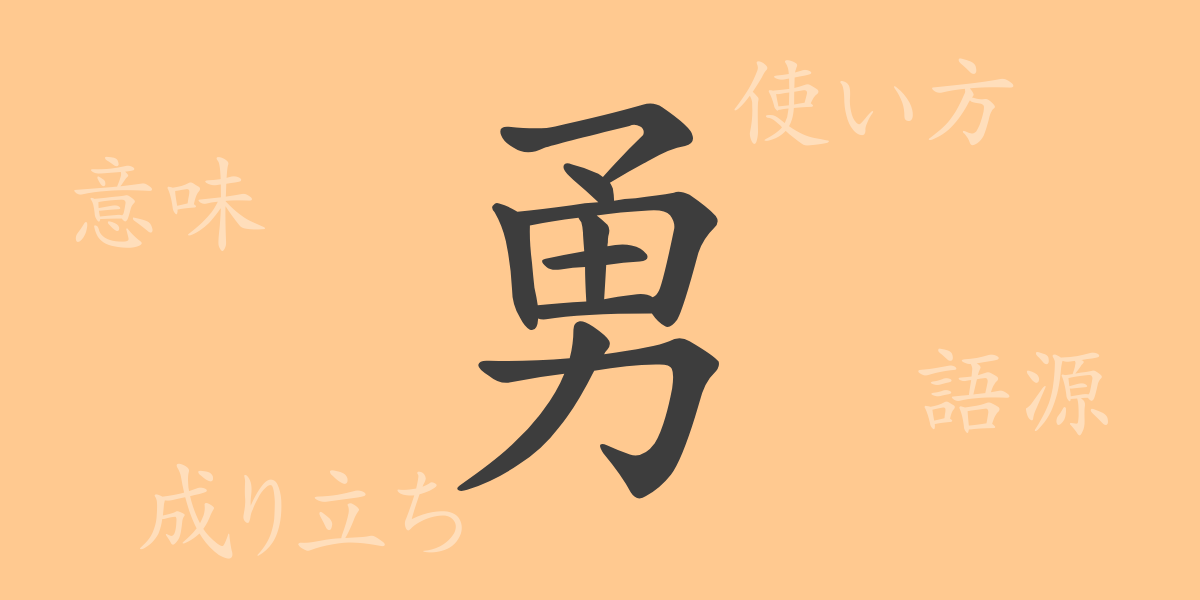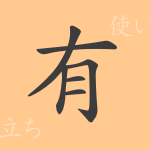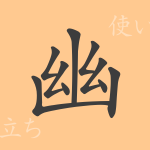The written characters of Japan each carry deep meanings and histories. One of the commonly used kanji (Chinese characters) is “勇 (yuu),” a word frequently encountered in daily life, yet its etymology and cultural significance are not widely known. In this article, we will delve into the world of this powerful character, from its origins and usage to the idioms and proverbs it appears in.
The Origin (Etymology) of 勇 (yuu)
The origin of the kanji “勇 (yuu)” is ancient, evolving from pictographs symbolizing strength and courage. “勇 (yuu)” has its roots in ancient Chinese oracle bone script, where its shape represented “a hand with strength.” Over time, this character came to be used to signify strength and courage, and it continues to be used by many people today.
The Meaning and Usage of 勇 (yuu)
The kanji “勇 (yuu)” is used to signify courage and bravery. It is often used to express mental fortitude in the face of challenges and the act of taking action without fear. Additionally, it can denote not only mental courage but also physical strength and vigor.
Reading, Stroke Count, and Radical of 勇 (yuu)
To understand the structure of the kanji “勇 (yuu),” it’s important to know its readings, stroke count, and radical.
- Reading: The on’yomi (Chinese reading) is “yuu,” and the kun’yomi (Japanese reading) is “isa.mu.”
- Stroke Count: It has a total of 9 strokes.
- Radical: The radical is “力 (chikara),” which means “strength.”
Idioms, Phrases, and Proverbs Using 勇 (yuu) and Their Meanings
The kanji “勇 (yuu)” appears in many idioms, phrases, and proverbs. These expressions are frequently used to convey courage and bravery.
- 勇気百倍 (yuuki hyakubai): Courage increases tremendously.
- 勇往邁進 (yuuou maishin): To continue advancing without fear.
- 勇猛果敢 (yuumou kakan): Displaying bravery and fearlessness.
- 臥薪嘗胆 (gashin shoutan): Enduring hardships and bitter experiences to eventually achieve great success.
Summary of 勇 (yuu)
Through this article, you should have gained an understanding of the deep meanings of the kanji “勇 (yuu)” and the rich emotions and actions it can express. In the Japanese language, “勇 (yuu)” serves more than just a character; it can be a source of spiritual support. By embodying the spirit of “勇 (yuu)” in daily life, we can overcome difficulties and have the courage to challenge new possibilities.

























